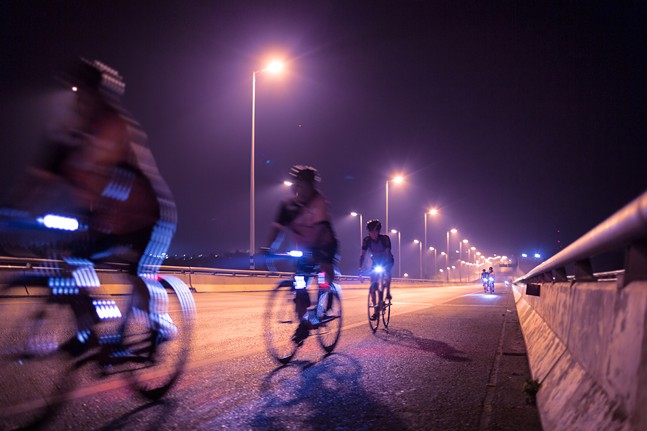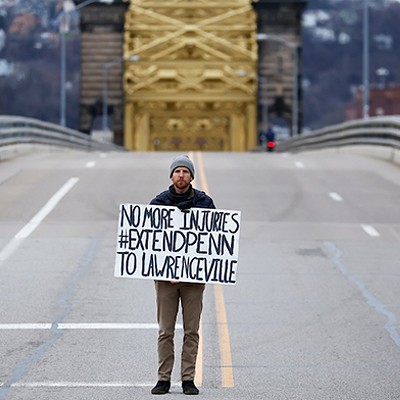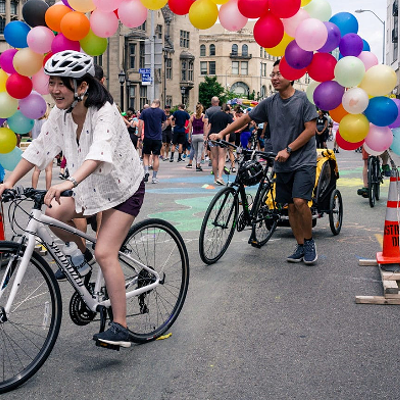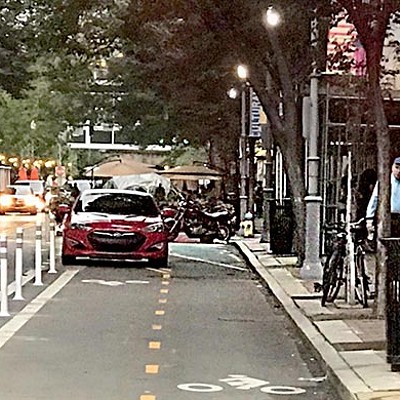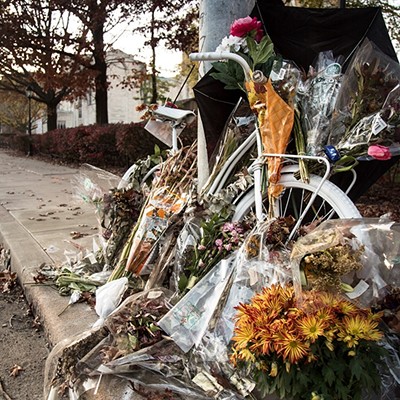As part of its Operation Illumination initiative, Bike Pittsburgh — a local non-profit focused on improving the safety of bikers and pedestrians — will be giving away bike lights today, Thursday, Nov. 7.
Between 6 p.m. and 8:30 p.m. on Liberty Avenue in Bloomfield, riders will be able to bring their unlit bikes to the Operation Illumination pop up to have a set of front and rear lights installed at no cost. In addition, riders will also receive other bike safety resources, including Bike Pittsburgh’s Bike Map and Biking 101 Guide.
Biking after dark without lights is a ticketable offense in Pennsylvania and it also poses an increased safety risk to the rider. Nighttime bicyclists are more likely to be involved in fatal motor vehicle crashes than their daytime rider counterparts. While 80 percent of cyclist trips occur during the day, around 50 percent of fatal cyclist-motor vehicle crashes happen during the hours of darkness.
Operation Illumination was started in 2011 by Bike Pittsburgh to provide riders with safety equipment and to create a space to both educate and engage the biking community. Thursday’s pop-up will be the last Operation Illumination even of 2019. Bike Pittsburgh staff and volunteers will continue installing lights until the end of the event, or until supplies run out.
"Bike lights are more than important," says DeVaughn Rodgers, Education Program Coordinator for Bike Pittsburgh. "They are not only keeping you safe and visible, but they are also a legal requirement. Just as it is for cars. The more visible you are as a cyclist the safer you are on the road with vehicles."
Bike Pittsburgh notes that in order for a rider to receive a free set of bike lights, their bike must be present at the pop-up event.
As to where and when these fatal bicyclist-motor vehicle crashes are occurring, 70 percent take place in urban settings and 72 percent at locations not at an intersection, according to a Governor’s Highway Safety Association (GHSA) 2017 report. While these crashes are fairly evenly distributed between daylight and darkness (47 percent each), the fact that 80 percent of cycling trips take place during daylight hours points to the increased risk for riding at night.
Taking a three “E” approach – engineering, education, and enforcement – is needed to make gains in bicyclist safety, according to Bike Pittsburgh. While infrastructure improvements (engineering) are key, behavioral-related initiatives (education and enforcement) must work in tandem with the built-environment to ensure the safety not only of bicyclists, but all roadway users. GHSA is calling on states and their partners to consider 30 recommendations that address planning, resource allocation, education and training, public outreach, policy, and technology.

